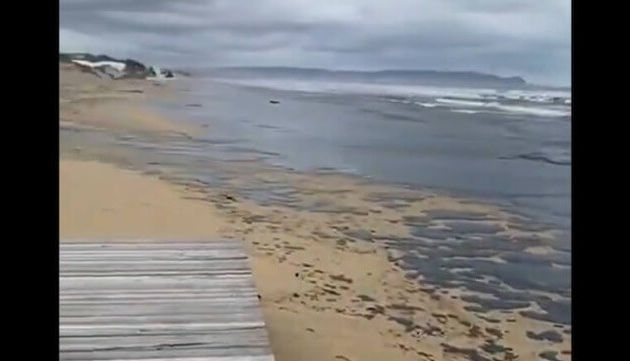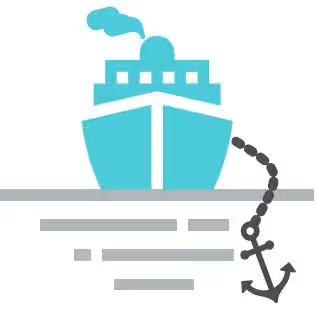Environmental Crisis: Mazut Spill from Tankers Volgoneft 212 and 239 Affects Anapa Beach
A significant fuel spill from the sunken tankers Volgoneft-212 and Volgoneft-239 has occurred in Russia’s section of the Black Sea, and a third ship from the same fleet, Volgoneft-109, has reported an internal tank leak.
The Russian transport agency Rosmorrechflot stated that the aging river-sea tanker Volgoneft-212 sank during a severe storm on Sunday, approximately five nautical miles from the Kerch Strait. The storm was predicted to produce waves over 25 feet. A video captured by a crew member shows the vessel breaking apart in the storm, with the bow drifting away from the bridge deck.

Source: Russian social media
Additionally, the Volgoneft-239 ran aground near Taman during the same storm, and initial reports indicated that it was leaking fuel oil, prompting the evacuation of its crew for safety.
On Tuesday, the third tanker, Volgoneft-109, reported an internal leak in a cargo tank, causing fuel to spill into a ballast tank. However, the vessel remains stable and watertight off Kavkaz, on the Sea of Azov side of the Kerch Strait, with the crew still on board and assisted by a salvage vessel.
New footage released on Tuesday highlights the environmental impact of the spills on the Russian side of the Kerch Strait. The weather has pushed the fuel onto the shore near Anapa, a popular tourist destination in Russia, resulting in approximately 15 nautical miles of beachfront being covered in sludge. The Volgoneft-212 was carrying around 4 300 tonnes of mazut, a type of residual fuel oil produced from low-quality feedstocks in Russia and Central Asia.
All three tankers – Volgoneft-212, 239, and 109—were constructed between 1969 and 1973 as part of a major Soviet construction program that produced numerous ships for the Black Sea-Volga “river-sea” fleet. Many of these aging vessels are still operational today, but due to Western sanctions and domestic shipyard constraints, Russian operators have limited options for replacing them in the near future.

